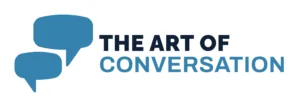 Hollywood has an undeniable knack for shaping perceptions of reality, often blurring the lines between fiction and what audiences take as truth. The imagery, narratives, and characters presented in films can deeply affect how individuals conceptualize the world around them. Movies and TV shows create a lens through which many view complex issues, and conspiracy theories find fertile ground in the stories that unfold on screen.
Hollywood has an undeniable knack for shaping perceptions of reality, often blurring the lines between fiction and what audiences take as truth. The imagery, narratives, and characters presented in films can deeply affect how individuals conceptualize the world around them. Movies and TV shows create a lens through which many view complex issues, and conspiracy theories find fertile ground in the stories that unfold on screen.
Consider the portrayal of government agencies in countless films. Whether they are depicted as heroic protectors or shadowy figures with nefarious agendas, these representations feed into the public’s understanding of authority and trust. Look at classics like “The X-Files,” which suggests that secret government operations conceal the truth about extraterrestrial life and other profound events. Such portrayals ignite curiosity and doubt, making viewers question the official narratives they encounter in real life.
The influence extends beyond just government conspiracies. Films often weave intricate plots that suggest hidden truths lurking behind mundane reality. The popularity of thrillers like “The Da Vinci Code” and “JFK” stirs interest in historical events, inviting audiences to ponder the existence of alternative explanations that mainstream sources might overlook. This creates a culture where skepticism is not merely encouraged but celebrated.
Today’s filmmakers have tremendous power. They often tap into contemporary concerns about surveillance, misinformation, and the loss of privacy. The series “Black Mirror” serves as a stark reflection of our digital age, exploring the dark undercurrents of technology’s influence on society. Such narratives encourage viewers to reflect on their world, potentially leading them down rabbit holes of inquiry into the validity of the information that surrounds them.
Moreover, social media platforms amplify this influence, allowing narratives crafted in Hollywood to spread rapidly. The rise of user-generated content often intersects with mainstream media, propagating interpretations that align with personal biases or sensationalist viewpoints. This creates a feedback loop where fiction and conspiracy blur even further, leading some audiences to adopt beliefs they initially encountered in the context of entertainment.
The convergence of these elements highlights how Hollywood’s storytelling shapes our understanding of reality, encouraging an environment where conspiracy theories can thrive. The narratives that emerge from the silver screen have the power to transform everyday perceptions, challenging what individuals accept as truth and reality.
The Role of Films and Television in Propagating Conspiracy Theories
Films and television shows have an uncanny ability to present conspiracy theories not just as far-fetched ideas but as plausible realities lurking beneath the surface of our everyday lives. Take the show “Homeland,” for instance. It explores the complex world of espionage and national security, effectively blurring the lines between protectors and potential threats. The protagonist, Carrie Mathison, often grapples with the idea that her government might not always have the public’s best interests at heart. This leads viewers to question the integrity of those in power and to consider the possibility that there could be layers of deceit hidden from plain sight.
Additionally, the film “Enemy of the State” spins a narrative that revolves around government surveillance and the erosion of privacy, making the audience wary of the very systems designed to protect them. It’s a calculated strategy where fear and intrigue intermingle, prompting viewers to entertain the notion that they, too, could be unwitting subjects of a larger conspiracy. Here, Hollywood doesn’t just entertain; it plants seeds of doubt that flourish in the fertile soil of uncertainty.
Notably, documentary-style productions contribute to this phenomenon by mixing fact with sensational storytelling. The likes of “Loose Change,” which examines the events of September 11, 2001, presents its arguments through a cinematic lens, drawing viewers to its controversial conclusions with a sense of urgency and intrigue. This framing can sway perceptions dramatically, fostering skepticism toward widely accepted narratives and prompting people to scrutinize the information they consume.
Furthermore, reality TV has its own role in this elaborate dance between truth and fiction. Shows that touch on paranormal phenomena or investigative journalism often spill over into more speculative territory, leading fans to consider outlandish claims as potential truths. Programs such as “Ancient Aliens” and “Finding Bigfoot” entwine entertainment with suggestions of hidden truths waiting to be uncovered, which can sometimes blur the distinction between legitimate inquiry and unfounded conspiracy.
This confluence of narrative techniques, combined with the heightened emotional responses elicited by these stories, stirs public discourse while simultaneously shaping beliefs. People don’t merely watch these depictions; they internalize them, allowing Hollywood’s influence to weave its way into their understanding of real-world events. Films and television shows do more than reflect societal questions; they actively inspire individuals to explore, ponder, and sometimes even embrace the conspiracies that Hollywood has popularized.
